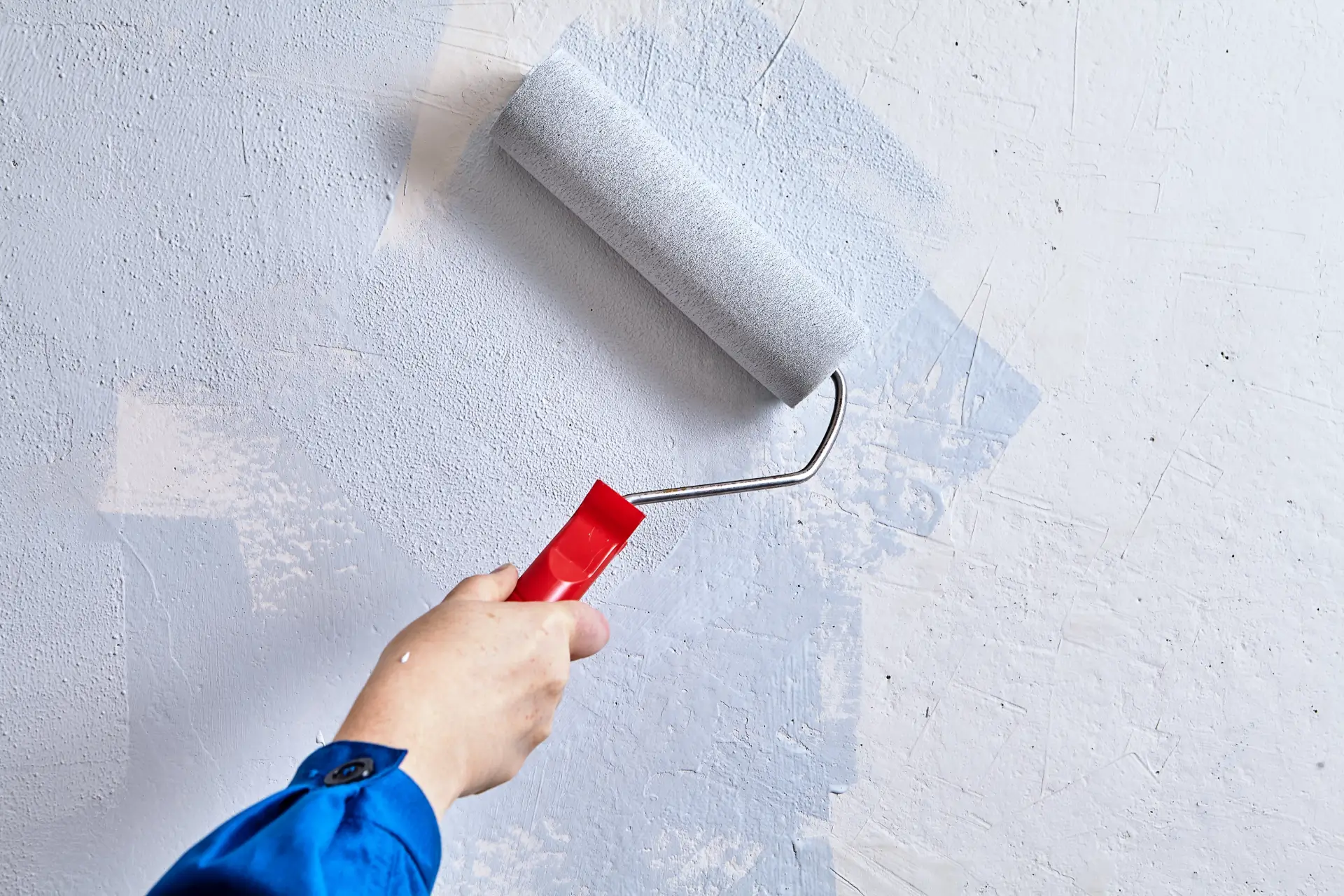


Refinancing a home mortgage can be a big decision for many homeowners. Your situation and needs change over time so why shouldn’t your mortgage? Now might be the right time for you to refinance into a lower rate mortgage.

So, how do you know if refinancing is right for you? Ask yourself these simple questions.
If you answered yes to any of the above, then refinancing may be the right, and easier, way for you. Refinancing is an easy way to solve many of your mortgage worries. Getting a lower monthly rate and paying less over the life of your loan just makes sense. At Crescent City Home Mortgage we’re ready to find the right refinancing solution for you. Our staff of refinance experts will help you evaluate your mortgage needs and draft a refinancing plan that will save you money.
Be sure to check out our mortgage refinance center to get the information you need so you can make a sound decision for you and your family.
Determining if a home refinance loan is right may come with a few questions. That's why we've put together a list of common questions that homeowners have when considering refinancing.
Refinancing is simply getting one loan to pay off another.
Typically, the closing cost of a refinance is between 1% & 2% of the loan amount, lender fees included. You may choose to pay points (see below) to lower your interest rate, or you could want to do a Low- or No-cost refinance. Contact us if you have any questions, or would like to know more. We are here every step of the way to make things easy.
Points (or discount points) are a way of lowering your interest rate. By paying 1% of the total loan amount up-front, a borrower can lower his interest rate by about 1/8%.
The rate refers to what percentage of your loan you will pay in interest per month, whereas the annual percentage rate (APR) is an adjusted percentage that expresses the yearly cost and also includes certain charges and fees.
The interest rate of a Fixed-rate Mortgage (FRM) will not change for the life of the loan. Alternatively, an Adjustable-rate Mortgage (ARM) will be subject to periodical interest rate adjustments based on interest rates around the country.
It depends. When you refinance, you may be able to get lower interest rates, but there are additional costs. On the other hand, a loan modification usually means extending the term of the loan and increasing the interest rate, but adding no other fees. Use our free mortgage calculator to compare what each might cost.
The 2% rule states that you should aim for a 2% lower interest rate in order to ensure that the savings generated by your new loan will off-set the cost of refinancing, provided you’ve lived in your home for 2 years and plan to stay for at least 2 more.
While this rule is useful as a point of reference, it shouldn’t be adhered to strictly. If you think you will stay in your home for 5 or more years, for example even a 1% interest rate reduction will pay off for you. Additionally, with low- and no-cost refinancing options available, the cost of refinancing can be recovered much more quickly. Talk with us if you’d like to know more.
PMI stands for Private Mortgage Insurance. Borrowers with less than a 20% down payment are required to carry this insurance as a means of protecting the lender against default.
Yes. It is important to determine what your home's value is in order to know what you can borrow.
Not exactly. When considering a refinance loan, it's important to remember that the better your credit score the better interest rate you can get. So, if you don't have perfect credit you can still qualify for a refinance loan, but you'll want to make sure that you're lowering the interest rate on your loan enough to make a refinance worth it.
Yes. The general rule is that you need to have a 90% loan-to-value ratio before you can refinance. This means that your home is worth about 10% more than the loan that is current on the house. Additionally, your home will need to have increased in value since you purchased it.
Yes. Depending on the type of refinance loan you opt for, you can take out cash to use for bills, home repairs. renovations or whatever you might need it for. This option however should be carefully thought out. We can help and guide you to make an informed decision.
Yes, and right now, you will want to do this because, now is the time to refinance because interest rates are so low. You can "lock-in" your rate today by contacting us or applying.
The process usually takes between 2 and 4 weeks. Getting your home appraised is usually where most time is consumed. If you can, schedule a home appraisal right away. The remainder of the process is usually very quick.
There are a few ways to lower your monthly payment, including obtaining a lower interest rate or extending the term of your loan. This is usually the primary reason for obtaining a refinance loan. Whether you're looking to switch from a variable rate to a fixed rate loan, or looking to pay less per month, a refinance loan can help provide more stability and smaller payments.
Many people would like to take advantage of the equity they have built in their homes. When refinancing, it is possible to accomplish that while still reducing your monthly payments. Accessing the equity in your home is a great way to make those home improvements, pay for college, take that trip you've always wanted, possibly start a business, the list goes on! For most people their home is their greatest source of wealth, so using it to it's full advantage can make a big difference.
Refinancing can be useful in keeping your debt manageable by replacing high-interest loans (such as credit card debt) with a single, lower-interest loan. You can take the cash that you gain from taping the equity in your house and pay off debt that you might have such as credit cards or auto loans.
Depending on how much equity you have in your home, you may be able to refinance, or even possibly drop your private mortgage insurance or PMI. This can result in lower overall monthly payments on your mortgage.
Points - By paying points up-front, you can reduce your interest rate. Those who see benefits from paying points up-front are ones who plan on being in their homes for a while. A lower interest rate means a lower monthly payment. The longer you pay the lower monthly payment, the more sense it makes to pay points up front.
This option can eliminate some, or all, of the fees associated with refinancing, but also carries a higher interest rate than a standard refinance. It's important to take all aspects of a new loan into consideration before refinancing. Our refinance professionals are ready to help you make the right decision. Let us help you determine of low-cost refinancing is a good fit for you.
There are many refinancing options available, and the benefits of each are unique. Whether you’re looking to reduce your payments tap into your home's equity or consolidate debt, we can help every step of the way.

When you refinance, certain documents and information will help the process move forward more quickly. Below are some of the documents needed to refinance. The more information you have on-hand, the faster your refinancing will go.
You are likely to need:
Employment Information
Assets & Obligation Information
Insurance Information
People refinance for a number of reasons, including consolidating, mortgages, getting a lower interest rate, or lower your monthly payment. Perhaps you want to switch from an Adjustable to a Fixed-rate Mortgage, or stop paying Private Mortgage Insurance (PMI). Maybe you're just looking to cash out some of your home's equity for renovations. Refinancing allows you to redefine your mortgage loan to better fit your current needs.
However, there are many things to consider before deciding to refinance your mortgage. With so many options, it's important to refinance the right way. At Crescent City Home Mortgage we’re happy to show you all of your options so you can make the best decision on a refinance loan. If you would like to find out if a refinance is right for you then give us a call today at 985-951-2230.

Are you planning on moving soon or are you in it for the long-haul?
Planning on staying in your home for more than two years? A refinance mortgage is a great option, because a refinance loan does require closing costs homeowners who plan to stay in their home for more than two years will usually; make up for those costs with lower monthly payments. If you're looking to move within the next two years then a refinance might be a good idea depending on how far your rate drops. Please contact us to see if a refinance works well for you.
Do you need to tap into the equity of your home?
For most people a home is their most important and substantial investment. History proves that home values increase over the long-run. If your home is now worth more than it was when you purchased it you can use a refinance loan to access that extra value and turn it into cash you may need.
Is it time to grow your home?
As families grow, homes can feel smaller. Refinancing your mortgage is a great way to access funds for a home improvement projects and increase the value of your home. This type of refinance can really pay for itself in the end.
Are the terms of your mortgage outdated?
It's likely that your situation in life is not exactly what it was when you first closed on your home. If that's the case, maybe your mortgage terms need a little updating too. Refinancing is a great way to switch from an adjustable to a fixed rate loan or to get into a 15 year loan as opposed to a 30 year.
Don't pass up the chance to improve your mortgage situation today by calling our lending professionals to see if refinancing is the right for you.
These materials are not from HUD or FHA and were not approved by HUD or a government agency and in some cases a refinance loan might result in higher finance charges over the life of the loan.